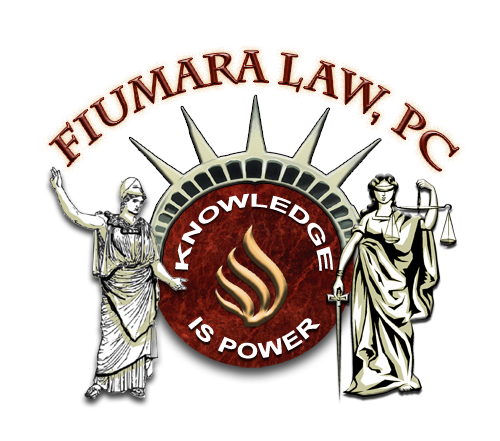Our law firm’s criminal defense lawyers defend clients accused of embezzlement throughout the North Bay area, including Sonoma County and Marin County.
Penal Code 503
Embezzlement is a white collar crime that is also commonly referred to as employee theft and employee fraud. California embezzlement is defined under Penal Code 503 PC as unlawfully taking something from another that has been entrusted to you.
The “entrusting” is the major difference between embezzlement and other types of theft. In order to be convicted of embezzling property, it must be property that you legally possessed or had authority to access.
Embezzlement is most frequently seen in connection with employment situations. This explains the other common names that have been used in the past.
Because of the stigma that a California embezzlement charge carries, it is a charge worth fighting since many future employers would simply not hire you. False accusations, misleading evidence or even a lapse in judgment shouldn’t jeopardize your future job opportunities or, more importantly, your freedom.
To gain a better understanding of California’s embezzlement laws, Fiumara Law, PC criminal defense attorneys provide a comprehensive guide to understanding this crime and the available defenses.
What Is Embezzlement Under Penal Code 503 PC?
Although embezzlement used to be a crime in and of itself, it now falls under the umbrella of Penal Code 484 theft. Embezzlement is simply one way to commit a theft. In its very definition, theft refers to embezzlement. “Every person who shall fraudulently appropriate property that has been entrusted to him/her is guilty of theft.”
The value of the property “embezzled” will determine whether you are penalized under Penal Code 487 grand theft or Penal Code 488 petty theft.
The prosecutor can charge you with “grand theft embezzlement” if the value of the embezzled property is worth more than $950, or if you embezzle a firearm (grand theft firearm) or car (grand theft auto) regardless of their values. The prosecutor can charge you with embezzlement as petty theft if the value of the allegedly embezzled property is worth $950 or less.
How Is Proof Of Embezzlement Established By The Prosecutor?
Despite the fact that embezzlement is simply a form of theft, there are rules that apply specifically to California embezzlement law. In order for the judge or jury to find you guilty of this offense, the prosecutor must prove the following three facts (otherwise known as “elements of the crime”):
- That you had a relationship of trust with the victim, employer, etc.
- That, pursuant to that relationship, you were entrusted with certain property
- That you specifically intended to deprive the victim of that property by fraudulently taking it as your own
The Four Elements – A Closer Examination
1. “A relationship of trust” – To be convicted under California embezzlement law, you must be involved in a relationship of trust and confidence with the person from whom you allegedly embezzled his or her property. If that relationship doesn’t exist, you may have committed only a theft, but you would not be guilty of embezzlement.
The relationship of trust has been defined as one similar to a fiduciary relationship. A fiduciary relationship is one in which one person has complete faith and trust in the other. The fiduciary acts in the best interests of the other person, putting his or her own interests aside. Examples are when you act as an employee or caregiver, or placed in a position of power and authority over persons and property.
Some other examples of these types of trusted relationships include an employer/employee, a doctor/patient, and a lawyer/client. People involved in ordinary commercial exchanges, such as creditors/debtors or a taxi driver/passenger, for example, do not typically have the relationships of trust contemplated by California embezzlement laws.
2. “Entrusted with property” – If you are entrusted with property, it means that you are responsible for using or holding it for the owner’s desired purposes. It does not mean that you are free to do whatever you please with or to the property. This concept also implies that the “entrusted” property is that which you do not own or subsequently acquire through legal means. To the contrary, you hold or manage the property for someone else.
Some other examples are: If your job requires you to handle cash that belongs to your company, and instead of putting it in the safe or register, you take some for yourself; you have embezzled “entrusted property.”
However, if your boss asks you to perform work on his house (something clearly outside your job description) and he gives you $1,000 with the understanding that this amount is for your payment and costs but if you spend all $1,000 on yourself and don’t buy any supplies, you haven’t been “entrusted with property” for purposes of embezzlement, since the money was paid to you.
California embezzlement laws hold that you can’t be convicted of embezzling money or other property that is yours. If it belongs to you, it has not been entrusted to you, and you cannot be convicted of embezzlement.
3. “Specific intent to deprive” – In order to be convicted of Penal Code 503 PC embezzlement, you must specifically intend to deprive the rightful owner of his or her property. Although there is no requirement that you intend to permanently deprive him or her of that property, you must intend to at least deprive him or her of it at least temporarily.
Even if you intend to replace the property at a later time, you are still temporarily depriving the owner of that property, thereby still subjecting yourself to this embezzlement. The bottom line is that you violate California embezzlement law the minute you misappropriate property from its trusted purpose.
4. “Fraudulent taking” – You act fraudulently if you take advantage of or cause a loss to another by breaching that individual’s trust. For purposes of California embezzlement law, you “fraudulently take” another’s property when you use it for your own benefit. Here are some examples to illustrate these elements.
Examples Of Penal Code 503 Embezzlement
Employment: If you serve as a caregiver for an elderly couple, living in their home and if you take any property or money from the home, you could be guilty of embezzlement. The couple “entrusts” you with their property when they permit you to reside with them. (Of course, the prosecutor could charge you with financial elder abuse charges to be discussed later.)
A more straightforward example is, you work in a clothing store and instead of “restocking” a pair of jeans that someone has returned, you intentionally place them in your bag to take home. You would be guilty of Penal Code 503 embezzlement.
Many times when an employer accuses you of employee theft or employee fraud, he or she will withhold your wages and conduct an audit or forensic accounting to investigate his or her claim. Depending upon your employer and the level of their management style and sophistication, the owner (employer) may not even put you on notice of his or her suspicion. Rather, the employer may report your conduct directly to the police in the hopes that they will obtain a California search warrant and do a surprise raid or search of your car, home or other property to retrieve it.
Embezzlement charges may be filed even through there is no finding of the “trusted relationship,” as in the case of contractors.
Embezzlement By California Contractors
Penal Codes 484b and 484c relate to theft offenses, but specifically deal with embezzlement situations involving contractors. For example, if you are a contractor and you do the following:
- Divert funds from one project to another
- Willfully fail to complete a project for which you have already received funds
- Submit a voucher for a loan, intending to use the funds for a purpose other than the one you stated in your loan application
Other Examples Of Penal Code 503 Embezzlement
A. Bailee relationship – A “bailee” is an individual who has possession of someone else’s property. For example, if you are a valet (parking cars), you act as a bailee when someone gives you his or her car to park. During that time, you are not permitted to use the car for your own purposes; you are only responsible to park the car.
However, if instead of parking the car, you take it for a joyride, you are guilty of embezzling the car. Similarly, if you are a jeweler and someone leaves a watch for you to repair, and instead of repairing the watch, you keep the watch for yourself or sell it to someone else, you are guilty of embezzling the watch.
B. Embezzlement by tenants – For example, if you are renting an apartment and you sell the refrigerator that is provided to you by the apartment owner or landlord, you are guilty of embezzling the refrigerator.
Embezzlement And Related California Criminal Offenses And Overlap
In addition to Penal Code 484 theft (encompassing both grand theft and petty theft), there are a variety of other offenses that relate to California embezzlement law. They are often charged together. Here are a few examples:
Penal Code 459 burglary – Penal Code 459 defines California burglary as entering a structure with the intent to commit a felony (or a petty theft) once inside. This means that if, for example, you enter your workplace intending to steal from your employer, you may be convicted of both California’s burglary law and embezzlement once you enter.
Penal Code 496 receiving stolen property – Penal Code 496 defines “receiving stolen property” as buying, selling, receiving, concealing or withholding stolen property. While California, “receiving stolen property” law is typically aimed at the person who receives the already-stolen property (as opposed to the actual thief), the prosecutor has the discretion to charge you with this offense and embezzlement as a way of covering all of their bases.
If you embezzle property that you then sell to another, you could face prosecution for both receipt of stolen property and embezzlement.
Penal Code 470 forgery – Penal Code 470 defines forgery as knowingly altering, creating or using a written document, intending to commit a fraud. For example, if you sign your boss’s name to a check that you make out to “cash” and then cash it, you would be guilty of both forgery and embezzlement.
Penalties, Punishment And Sentencing For California Embezzlement Crimes
Embezzlement is typically punished as either Penal Code 487 PC grand theft (if the value of the embezzled property is worth more than $950) or as Penal Code 488 PC petty theft (if the value is $950 or less).
California Penal Code 487 PC grand theft is a “wobbler,” which means that, depending on the circumstances of your case and your criminal history, you may be charged with embezzlement as either a misdemeanor or a felony.
If you are convicted of grand theft embezzlement as a misdemeanor, you face sentencing of up to one year in a county jail and a maximum $1,000 fine. If you are convicted of embezzlement as a felony, you face a sentence of 16 months, or two or three years in the California state prison, and a $10,000 maximum fine. Since the passage of realignments in California, anyone convicted of this “nonviolent” crimes will serve his or her time in local county jails rather than a state prison.
If you are convicted of petty theft embezzlement, you face up to six months in a county jail and a maximum $1,000 fine. If the property you embezzled was valued at $50 or less, and you have no other theft-related convictions, our criminal defense attorneys have been successful at convincing the prosecutor to reduce the charge to an infraction, subjecting you to a maximum $250 fine.
Another option is diversion.
Multiple Violations — Grand Theft
If you embezzle more than $950 over a 12-month period from your employer, each act of embezzlement will be added up to penalize you as if you had committed one act of grand theft.
Furthermore, if you embezzle from your employer on different occasions, the prosecutor will attempt to charge your each act as a separate count. If this happens, our criminal defense attorneys will argue that each act was part of an overall plan and should only be charged as one offense.
This is just one of many strategies and tactics we employ to reduce your potential jail time.
Enhancements
Aggravated white collar crimes are subject to additional enhancements. If the embezzled property is worth more than $65,000, you face an additional and consecutive one-year California state prison sentence. This additional sentence can be as high as four years if the property is worth more than $3.2 million.
Aggravating And Mitigating Circumstances
Aggravating and mitigating circumstances are factors that the judge takes into consideration before imposing your sentence under California embezzlement law.
If you embezzled from someone who is a “dependent person” (that is, someone whose mental or physical impairment affects his or her daily activities) or a “senior,” the judge will consider that factor as an aggravating factor when determining your punishment. As a result, you will get additional jail time.
If you voluntarily and actually reimburse or replace the embezzled property before you are arraigned or indicted by a grand jury, that fact may serve as a mitigating factor when the judge imposes your sentence. It will not, however, act as a complete legal defense. Our criminal defense attorneys have gotten the prosecutors to give a great deal of leniency to defendants upon proof of restitution even after the initial arraignment or first court date.
It is in your best interest to contact one of our criminal defense lawyers immediately upon being accused or charged with an embezzlement or property type of crime. Depending on the circumstances, our criminal defense lawyers can help you initiate a civil compromise (which basically means that you repay the victim) in an effort to prevent criminal charges from being filed or later getting dropped upon proof of restitution.
Entrust Us To Fight Your Embezzlement Charges
There are many legal defenses that are applicable to embezzlement charges. Below is a brief description of some of the most common defenses that our criminal defense lawyers may argue on your behalf.
Claim Of Right/Good Faith Belief
You can’t be convicted of embezzlement if you obtained the property under what you believed to be a “claim of right.” This defense applies when you had a good faith belief that you were entitled to the property, regardless of whether that belief was wrong or unreasonable.
It is more credible that your belief in your right is so outspoken that you are shown to have taken the property in an open manner, without concealing your act.
A good argument will be if you used your employer’s corporate credit card to purchase company supplies and in addition, fuel for your car when you traveled to the supply stores. Even though you were never explicitly authorized to do this, you had a good faith belief that you were entitled to make these types of purchases with the company card.
To the contrary, under the same example above if you used the company credit card to buy yourself a new couch for your home, you would be guilty of Penal Code 503 embezzlement.
Lack Of Criminal Intent
You can’t be convicted of the crime of embezzlement if you didn’t specifically intend to deprive the owner of the property or to convert it for your own use, you can’t be convicted of this crime.
For example, your boss leaves you the keys to his car to start it every few days while he’s away but you decide that you would like to surprise him by having it detailed before he returns. He unexpectedly returns early, while you’re on your way to the car wash. He accuses you of embezzling his car.
Since you had no intent to deprive him of his car or to take the car as your own, you must be acquitted of the embezzlement charge.
False Accusations/Innocence
Of course the best defense is you didn’t do it. Perhaps someone falsely accused you of embezzling out of revenge or anger. Maybe the property in question had been embezzled, but someone else embezzled it, or maybe the police or prosecutor are relying on misleading evidence.
Regardless of how damaging the evidence is presented by the prosecutor, our skilled criminal defense embezzlement lawyers will thoroughly do for following on your behalf.
- Investigate all the allegations, and the sources
- Critically evaluate all of the evidence
- Highlight inconsistencies and weaknesses in the prosecution’s case
Please call Fiumara Law, PC toll free at 855-247-3190 or locally at 707-571-8600 in Santa Rosa and 760-832-6118 in Palm Springs. We’re happy to provide a free half-hour consultation at any of our convenient locations.
We are available 24/7. Our operations will connect you to one of our attorneys, nights and weekends!
Contact Fiumara Law, PC today!


